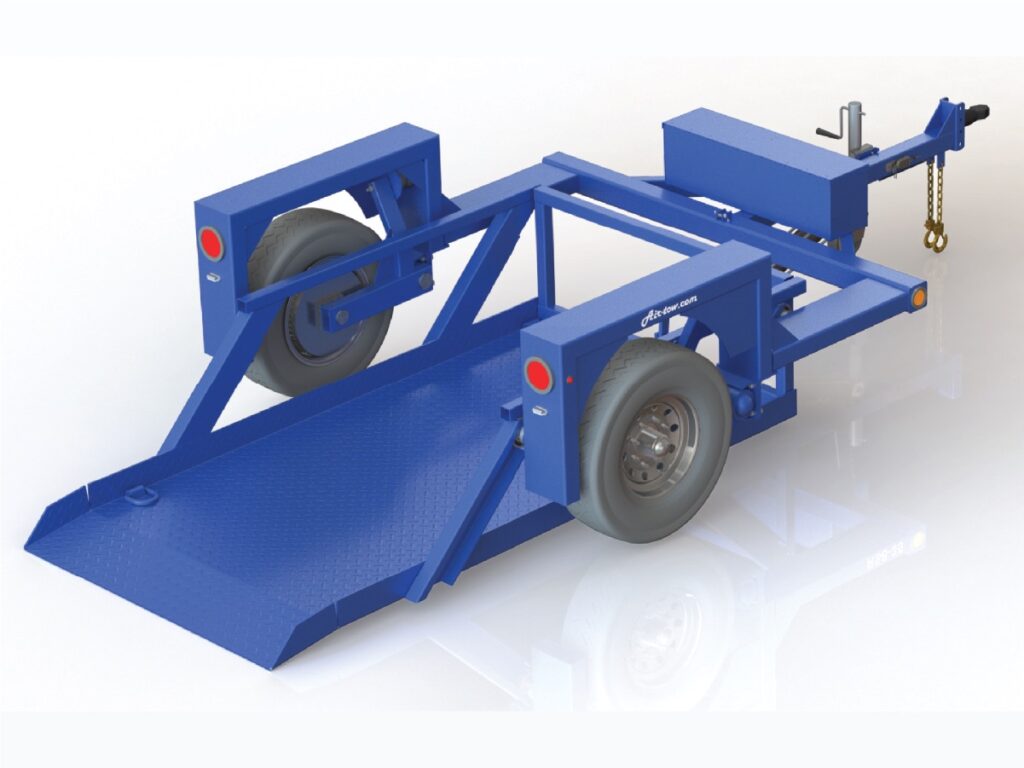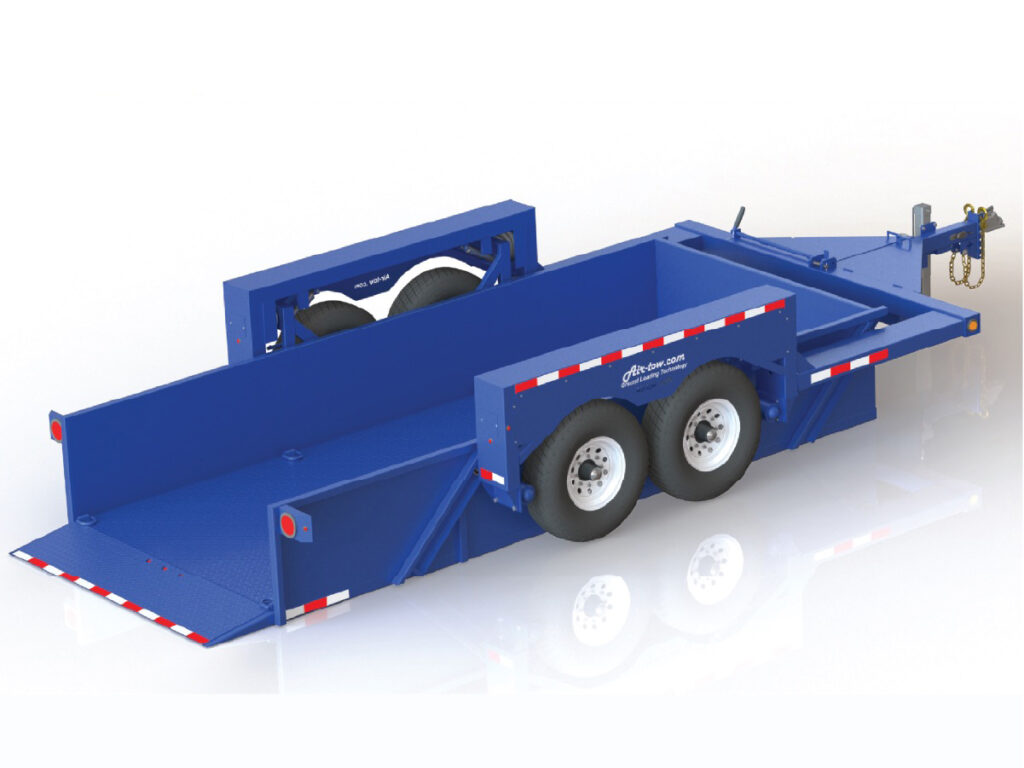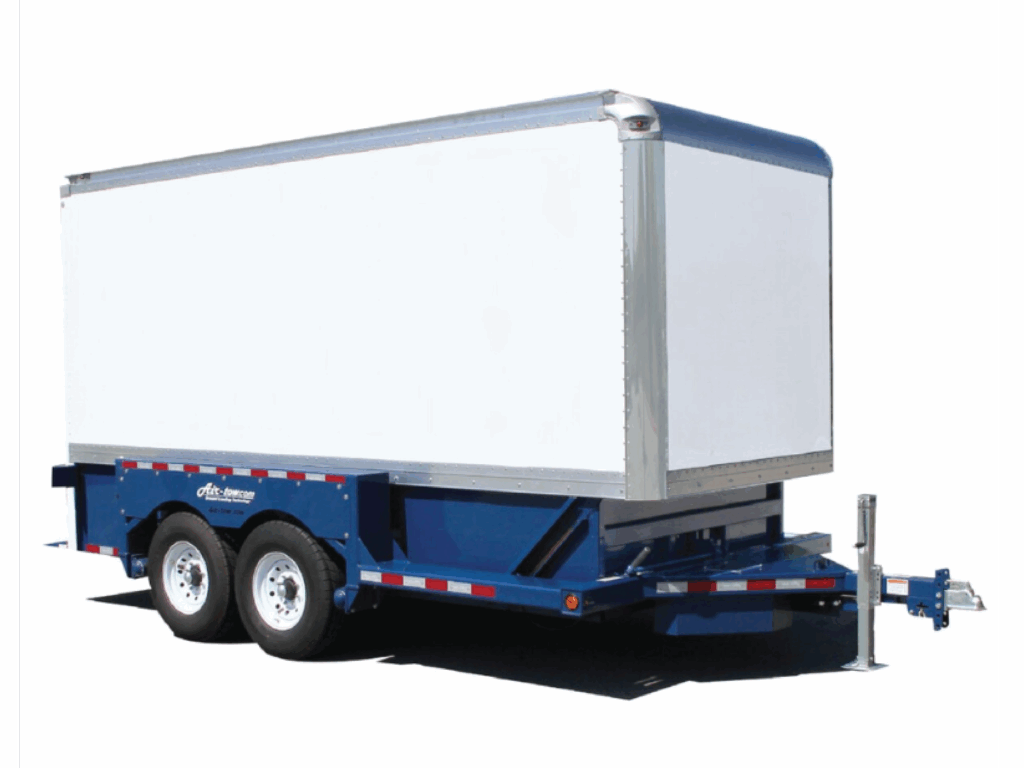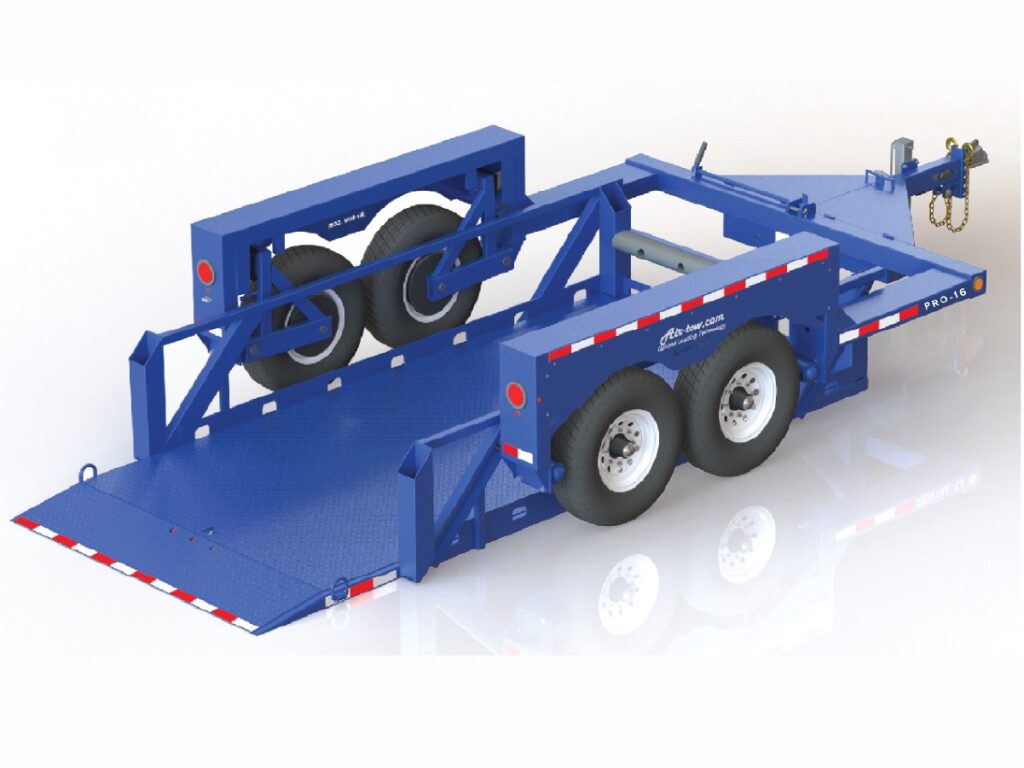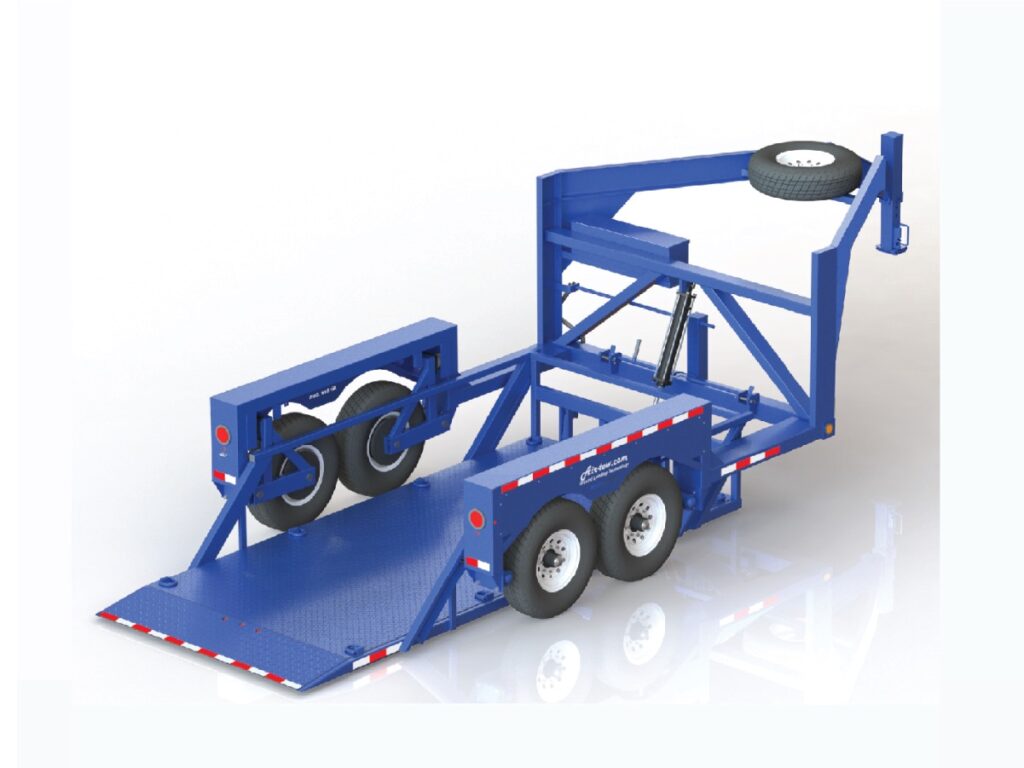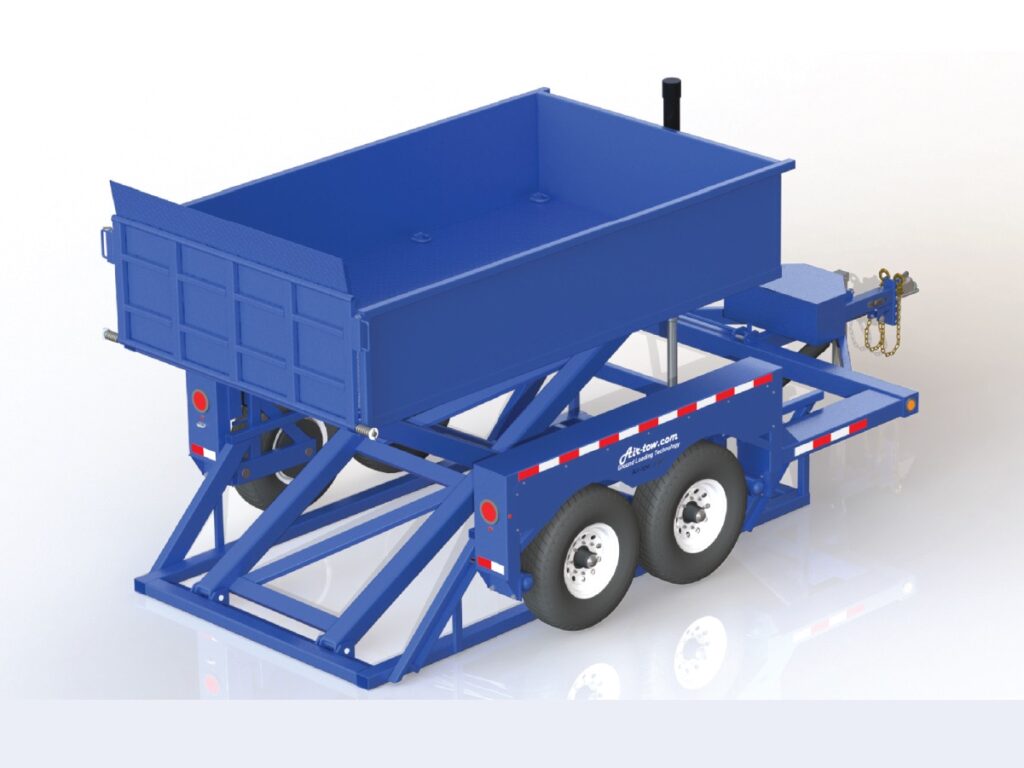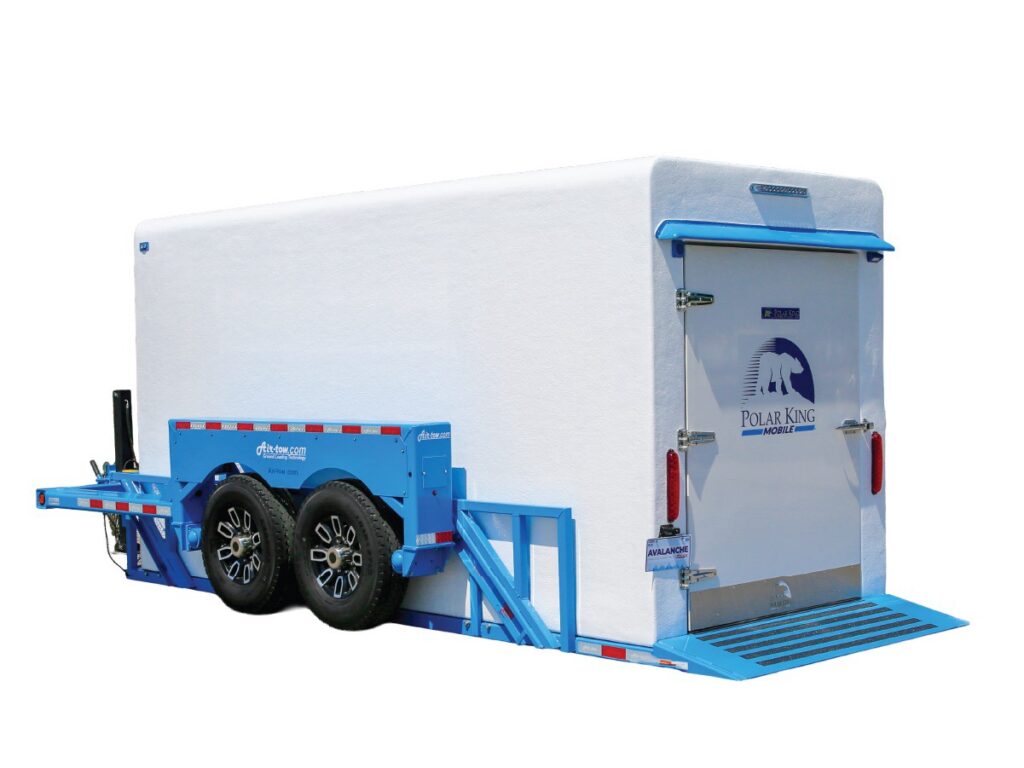When it comes to investing in equipment for your business, the decision isn’t just about functionality; it’s also about financial strategy. Air-tow Trailers provide unmatched safety, efficiency, and reliability, but did you know that purchasing one could also offer significant tax advantages? Thanks to Section 179 of the IRS Tax Code, businesses can potentially deduct the full purchase price of qualifying equipment, including trailers, in the year they put it into service.
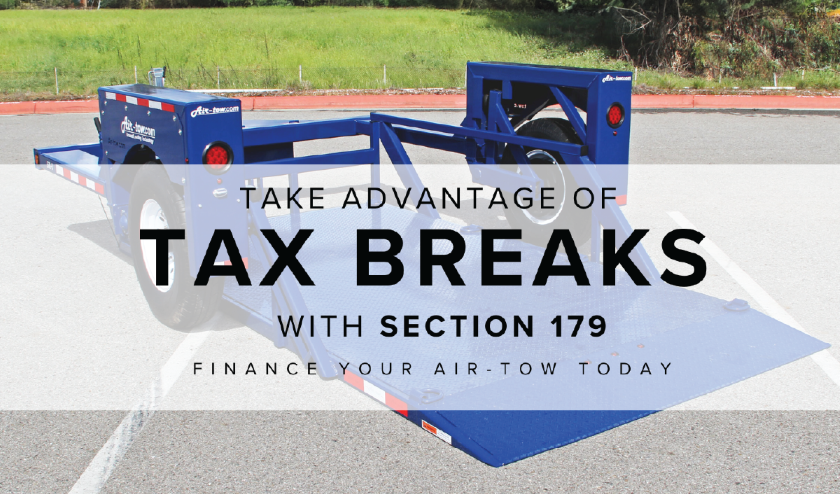
Section 179 Overview
Section 179 of the Internal Revenue Code is a tax provision designed to encourage small and medium-sized businesses to invest in equipment. The tax provision allows them to deduct the full purchase price of qualifying equipment from their gross income in the year it is purchased. Therefore, this deduction is beneficial for businesses looking to improve their operations through strategic equipment acquisitions.
What’s New for 2025?
Recent updates in tax law have made Section 179 even more powerful for business owners. The One Big Beautiful Bill Act (OBBBA), signed into law on July 4, 2025, permanently enhanced these provisions for businesses. For the 2025 tax year:
- Deduction Limit: Up to $2,500,000 in qualifying equipment purchases.
- Phase-Out Threshold: Begins at $4,000,000, with deductions fully phased out at $6,500,000.
This increase gives businesses more room to invest in the tools they need, while capturing significant tax savings.
Don’t Forget Bonus Depreciation
Normally, when a business buys equipment, the cost is deducted gradually over its useful life (often 5–7 years). Bonus depreciation changes that by allowing businesses to deduct a much larger portion, or even the full cost, of qualifying equipment in the first year it’s placed in service.
Key points:
After OBBBA, businesses can claim 100% bonus depreciation permanently.
For 2025, there’s also an option to elect 40% bonus depreciation if you prefer to spread deductions over time.
Bonus depreciation can be used in addition to Section 179, making it possible to maximize first-year write-offs even after hitting the Section 179 limit.
This flexibility gives businesses more control over how deductions impact their bottom line.
To qualify for the Section 179 deduction, equipment must meet specific criteria
Tangible: The equipment must be tangible, meaning it is physical equipment that can be used and seen. This typically includes machinery, furniture, fixtures, and other equipment used in the course of business operations.
Used for Business: The equipment must be used more than 50% of the time for business purposes. This means it should primarily serve a business function rather than personal use.
New or Used: The equipment can be either new or used as long as it meets the other eligibility criteria.
Placed in Service: The equipment must be in service during the tax year you’re claiming the deduction. “Placed in service” means the equipment is ready and available for use in your business.
Active Use: The equipment must be actively used in your business operations. It cannot be held for investment purposes or used for personal purposes.
Eligible Types of Equipment: Most types of equipment used in business operations qualify for the Section 179 deduction. This includes machinery, vehicles, computers, office equipment, manufacturing equipment, and similar items.
Leased Equipment: If you lease equipment, you can still qualify for the Section 179 deduction as long as the lease meets certain criteria. The lease term must be longer than the equipment’s useful life. You must also retain the option to purchase the equipment at the end of the lease.
It’s important to note that certain limitations and rules are associated with claiming the Section 179 deduction, including limits on the total amount that can be deducted and the taxable income limitation. Consulting with a tax professional can help ensure that you meet all requirements and maximize the benefits of the deduction for your business.
Form 4562
To deduct eligible property purchased in the initial year, you’re required to submit Form 4562 along with your tax return and opt for the Section 179 deduction. It’s necessary to detail the property for which you’re claiming the Section 179 deduction, along with its cost and the deduction amount. Additionally, remember to include any Section 179 deduction you intend to carry forward from prior years, provided your taxable income allows for it.
The Benefits of Buying Equipment
Financial Incentives: The primary advantage of Section 179 is the immediate tax relief it provides. Rather than depreciating the cost of the equipment over several years, businesses can deduct the entire cost in the year of purchase, significantly reducing their taxable income.
Cash Flow Improvement: Businesses can improve their cash flow by deducting the entire cost of the equipment upfront. This can be especially beneficial for companies with limited capital, as it allows them to invest in essential equipment while maintaining their financial resources.
Operational Efficiency: Upgrading to modern and efficient equipment, such as an Air-tow trailer, can enhance overall operational efficiency. The Air-Tow trailer’s innovative design, which includes a ground-level loading system and hydraulic lift, streamlines the loading and unloading process, saving time and labor costs.
Competitive Edge: Staying ahead of the competition is crucial in today’s fast-paced business environment. Investing in cutting-edge equipment improves efficiency and positions your business as a leader in your industry. This can attract new customers and help retain existing ones.
Air-tow Trailers: A Smart Investment
An Air-tow trailer is a smart investment when considering the benefits of utilizing Section 179.
Innovative Design: The Air-tow Trailer’s unique design eliminates the need for ramps, making loading and unloading equipment quick and hassle-free. This innovative approach saves time and minimizes the risk of accidents during the loading and unloading process.
Versatility: Air-tow Trailers are versatile and can be used for a wide range of applications, from transporting construction equipment to hauling landscaping supplies. This versatility ensures that your investment continues adding value across various business avenues.
Durability and Longevity: Air-tow Trailers are built with durability, ensuring a long lifespan and minimal maintenance costs. This reliability adds to the overall cost-effectiveness of the investment.
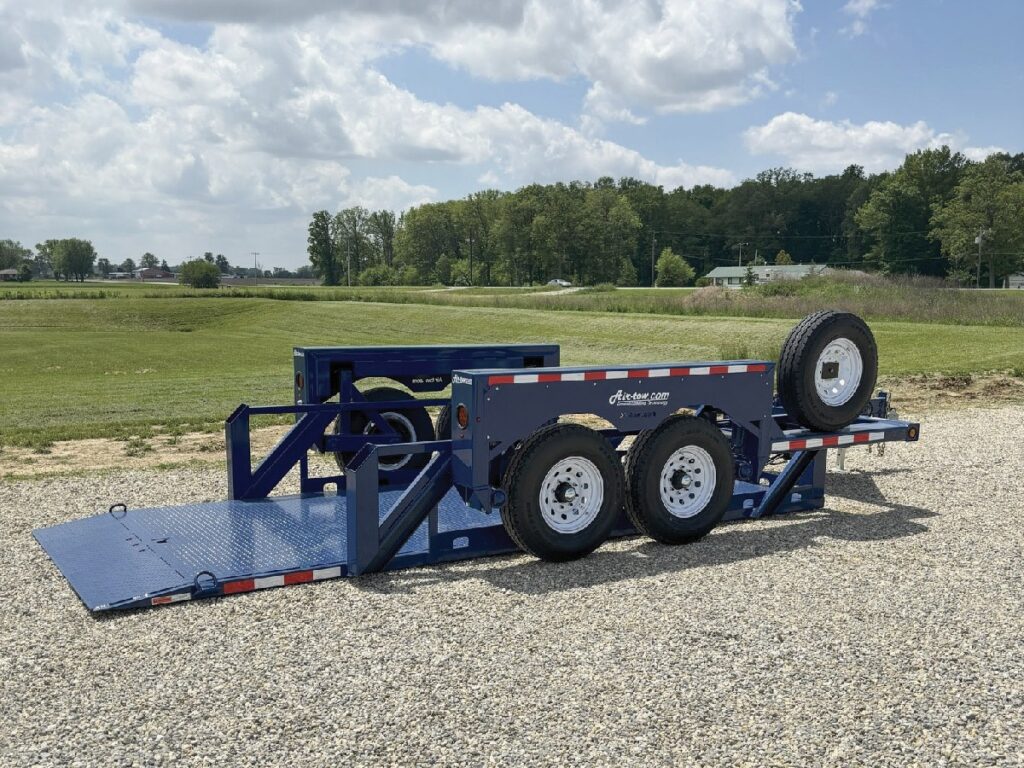
Set Your Business up for Success
In conclusion, leveraging the Section 179 tax deduction to invest in equipment like Air-tow Trailers is a strategic move for businesses looking to enhance efficiency, reduce taxable income, and improve their bottom line. The immediate financial benefits and the operational advantages of innovative equipment position businesses for long-term success. As you consider your equipment needs, explore the potential of Section 179 to maximize the return on your investment and push your business to new heights.
Contact us for more information about how to take advantage of section 179 and improve your business operations with an Air-tow Trailer.
Disclaimer: This blog is for informational purposes only and should not be considered tax advice. Businesses should consult with a qualified tax professional to understand how Section 179 and bonus depreciation apply to their specific situation.

